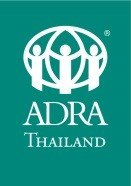
: ADRA Thailand
: Nonprofits / องค์กรไม่แสวงหาผลกำไร
: 978
: 25 November 2016
24 December 2016
ToR for Trainer of Paralegal Training
1. Executive Summary
|
Request from: |
ADRA Thailand |
|
Type of Training: |
Paralegal training on labor law and migrant right protection |
|
Type of Program: |
Migrant Right Advocacy |
|
Agreement Symbol |
DCI-NSA-PVD/2015/370-329 |
|
Funding Source |
The European Union |
|
Project title: |
Enhanced Capacities for Migrant Advocacy (ECMA) Project |
|
Project duration: |
36 months |
|
Overall Project Objective: |
To strengthen and empower marginalized and vulnerable migrant workers in Mae Sot, Thailand. |
|
Specific Project Objectives: |
Strengthened capacity of local CSOs (Thai and Migrant Worker led) to effectively advocate for improvements in labor/human rights and working/living conditions for vulnerable migrant workers in Mae Sot.
|
|
Objective of the Paralegal training: |
The main objective of this paralegal training is a) to build capacity of CSOs and migrant workers on migrant rights and laws; b) to enhance skills on handling and presenting migrant legal case to relevant organization especially the Labor Law Clinic (LLC), Maesot Lawyer Association for Human Rights along the Border (LHB) and Labor Protection Office (LPO); c ) to share experience of working on assisting vulnerable migrants on legal-related cases with different organizations. |
|
Approach of the Training |
Participatory |
|
Timeframe for Trainings |
5 Paralegal trainings conducted within one year (2017) |
|
Target Group for Training |
Community-based organization (CBO) , non-governmental organizations (NGO) led by Thai and Myanmar migrant community leaders and migrant workers |
|
Total number of Trainees |
At least 150 members from above target group |
Background to the Project
In January 2016, ADRA Thailand started a 36-month Project entitled Enhanced Capacities for Migrant Advocacy funded by the European Union that aimed at strengthening and empowering marginalized and vulnerable migrant workers in Mae Sot, Thailand. The project targets 3,750 migrant factory workers in Mae Sot, Thailand.
Thailand’s rapid economic growth in the past few decades has created a high demand for low-skilled and low-cost labour, attracting a large number of migrant workers from the three neighbouring countries, namely Myanmar, Lao People’s Democratic Republic, and Cambodia, to fill the gap of labor shortage. An estimated 3 million migrant workers from these three countries hold either regular or irregular status in Thailand[1]. As located in a bordering province - Tak, Mae Sot has eventually become a transit and destination of Myanmar migrants because of its high concentration of factories. According to statistics from the Tak Provincial Office, there were 27,059 Myanmar migrant workers registered at the Mae Sot District’s One Stop Service Center during the migrant registration process in 2015. Migrant workers are employed in factories in textiles, garments, food processing and ceramics. The majority of migrant workers are from Myanmar, with Burmese representing the largest ethnic group, along with other ethnic groups such as Karen, Mon and Arakanese.
The major problems facing Burmese migrant workers include: i) lack of awareness about their rights due to language barriers and accessibility to information. Importantly, a limited human resources of the local Labour Protection and Welfare Office compares to a large migrant population in the area; ii.) factory owners do not follow Thai labour law by registering their factories, leading migrant workers to become vulnerable in terms of working in unsafe, unhygienic conditions; iii) a major health concerns of migrant workers included skeletal or muscular illnesses due to heavy workloads and poor occupational health and safety standards; iv) lack of capacity of CSOs to engage in the dialogue process, at national level - little effective coordination, limited resources and travel restrictions, which are among major factors that limit the ability of CSOs to engage directly and actively in policy advocacy dialogue; and v) poor living and unhealthy conditions since migrants are often housed in overcrowded accommodation with inadequate facilities; some factories restrict their workers to the factory premises giving them no opportunity to find other accommodation.
It is envisaged that these identified problems will be tackled through the “Enhanced Capacities for Migrant Advocacy” project. The stated objective will be achieved by three expected results described below:
Paralegal Training
The individual trainer or the training team will undertake the following activity that proposed by the project under Result 1:
Conduct five (5) paralegal trainings for 150 members of community-based organization (CBO) and non-governmental organization (NGO) led by Thai and Myanmar included migrant community leaders in Mae Sot, in order to enhance their capacity on handling and presenting migrant legal case to the Labor Law Clinic (LLC), Maesot Lawyer Association for Human Rights along the Border (LHB) and Labor Protection Office (LPO).
Approach of the Paralegal Training
The training will apply a participatory approach to engage participants and encourage them to share experience of working on assisting vulnerable migrants on legal-related cases with different organization.
Keys Tasks of the Trainer or Training Team
The lead trainer will conduct the paralegal trainings by performing the following tasks:
Timeframe of the Paralegal Training
Training curriculum will be developed or modified by the end of December 2016. Five paralegal trainings will be scheduled and conducted through close coordination with ADRA Thailand. And one day refresher training will be conducted in first quarter of 2018.
Background of the Trainer undertake the Paralegal Training
Submission of application
Applications should be submitted no later than 2 December 2016.
Applications in the English language, including i) a resume of not more than 3 pages; ii) a cover letter; iii) a brief proposal to describe how trainings will be carried out; iv) contact details of 2 references should be submitted by email to linda@adrathailand.org cc to sunita@adrathailand.org and Jittakan@adrathailand.org
Only shortlisted candidates will be contacted.
[1] Thailand Migration Report 2014, International Organization for Migration (IOM).